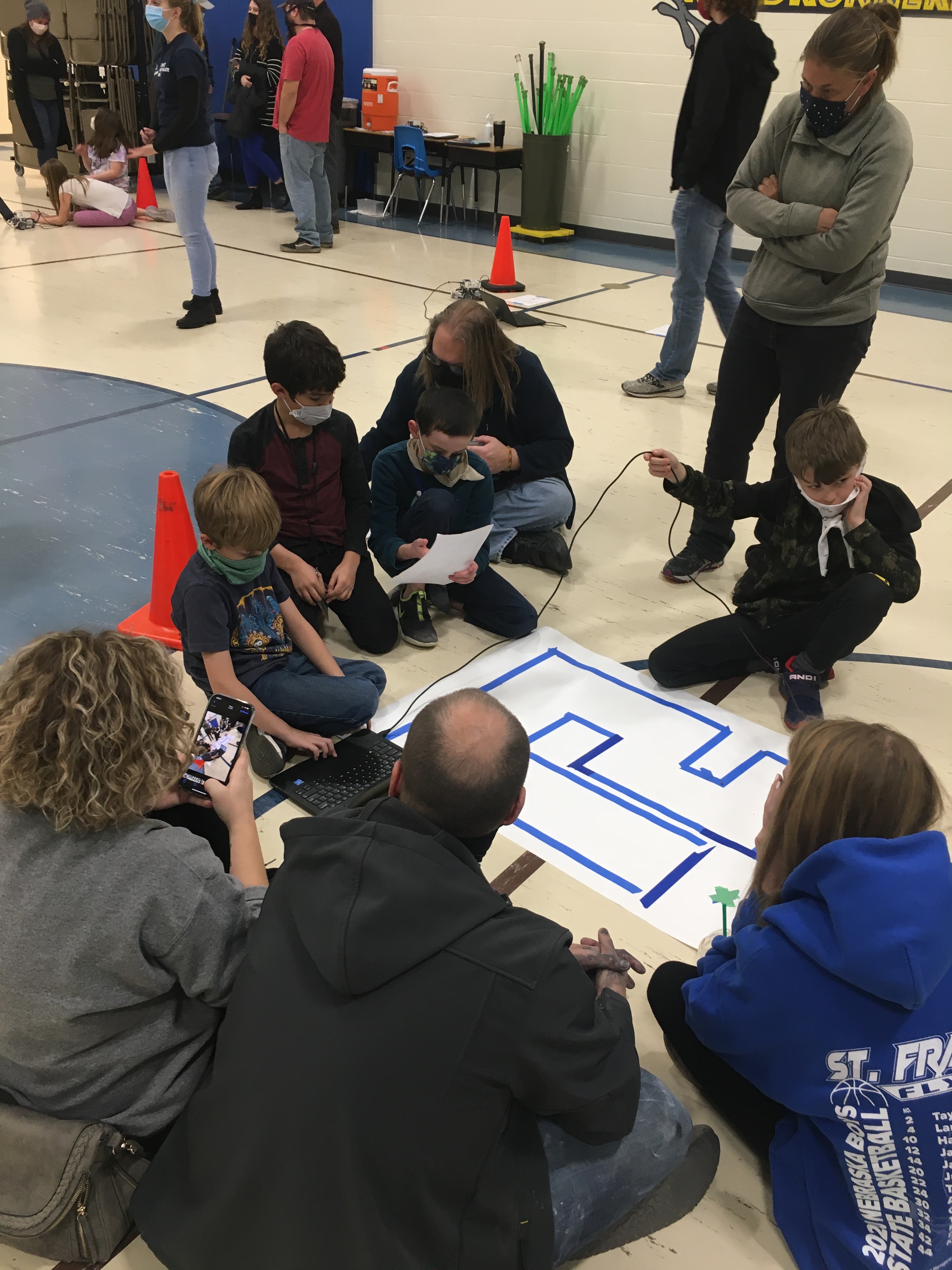
Keith Tran’s interest in computing was first sparked in middle school when he decided to join a robotics club.
“I was in love with LEGO robotics,” Tran said. “I remember carrying around a large green tub everywhere I went containing the different exoskeleton models I built for the First Lego League competition.”
A few years later, Tran’s robotics club team took first place at the state competition and became the first Title I school to achieve the honor. Tran said the win, his interest in robotics, and the eventual decision to pursue a computing career were a testament to the power of a quality outreach program.
Now, as a senior computer science student at the University of Nebraska–Lincoln, he’s working to create similar programs and experiences for younger Lincoln students today.
Tran is a member of Initialize, a student organization within the School of Computing dedicated to using their technology skills and knowledge to serve the local community. One of the group’s primary initiatives has been partnering with Lincoln Community Learning Centers to establish computing outreach programs in Lincoln Public Schools.
As part of this effort, Initialize has spent the past few years developing supplementary educational opportunities for elementary and middle school students such as after-school clubs, coding camps, and learning sessions. This fall, Initialize piloted a new 10-week robotics club program at three elementary schools, and quickly found there was a high demand for more opportunities.
“After teaching multiple 5- and 6-week sessions, we realized that many kids were hungry for more robotics on the last day,” Tran said. “It was evident hosting some kind of special day was needed.”
This prompted Tran and other Initialize members to plan a special event for students at Norwood Park, Holmes, and Brownell Elementary Schools. A Robotics Field Day event was held on Thursday, Nov. 18 from 5–6 p.m. at Norwood Park Elementary School. About 15 students in third, fourth, and fifth grade attended the event with their parents and family members.
“One thing that surprised us was how many families showed up for their kids,” Tran said. “I think whenever you can have family participation with events like these, you can really allow kids to develop their interest, especially for computing.”
Students from all three schools have been studying block coding all semester using Lego Mindstorm kits, provided by Initialize, and a programming language called Scratch.
The Field Day was designed to expand on what the students have been studying and also accommodate students at varying levels of ability. Ten stations, all designed by fellow Initialize member and computer science student Madison Maloney, allowed students to engage in multiple activities at easy, medium, and hard levels of difficulty.
“I came up with the ideas by using past activities that were included within each lesson’s curriculum, but I tried to make them different by altering and adding a twist to each station,” Maloney said. “They got to show off what they’d learned over the semester.”
Maloney said that the program has helped many students develop valuable skills that will help them succeed in the technology field and beyond.
“Learning basic computer science programming principles early can help students learn crucial and foundational skills such as problem-solving, communication, critical thinking, and teamwork,” Maloney said. “It can also expose students of various identities and diversities to the computer science and STEM field as opportunities in the future.”
Tran said the experience has been valuable for him as well.
“I enjoyed being a part of a student club that is making an attempt to impact the local community,” he said. “This is what I imagined college to be, and I was glad to be a part of it.”
Tran said he also feels that there are many more opportunities for Initialize and other organizations to make a positive impact on students through STEM education.
“I’m proud of what Initialize and the CLCs have done so far, but there is still plenty of work that needs to be done in order to truly broaden participation in computer science,” Tran said. “I do have hope that it is possible, but it will require the support from both governmental and non-governmental groups to make it happen.”
As for the Robotics Field Day event, Tran said it was a success that reminded him of his own exciting first experiences in computing.
“The event turned out great. The kids participating in the field day were so committed to the station challenges,” Tran said. “I felt like a kid again being in that atmosphere.”